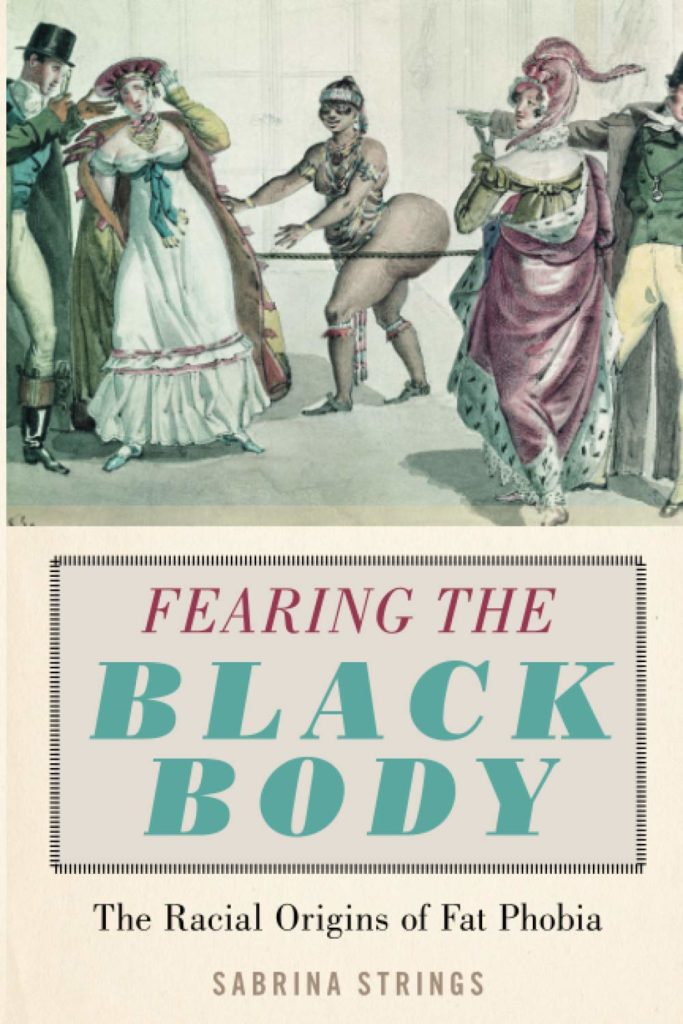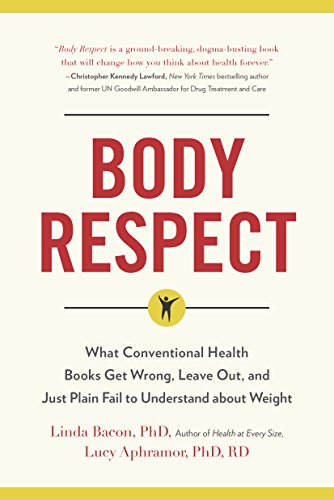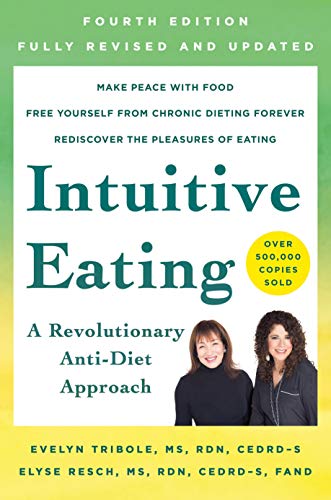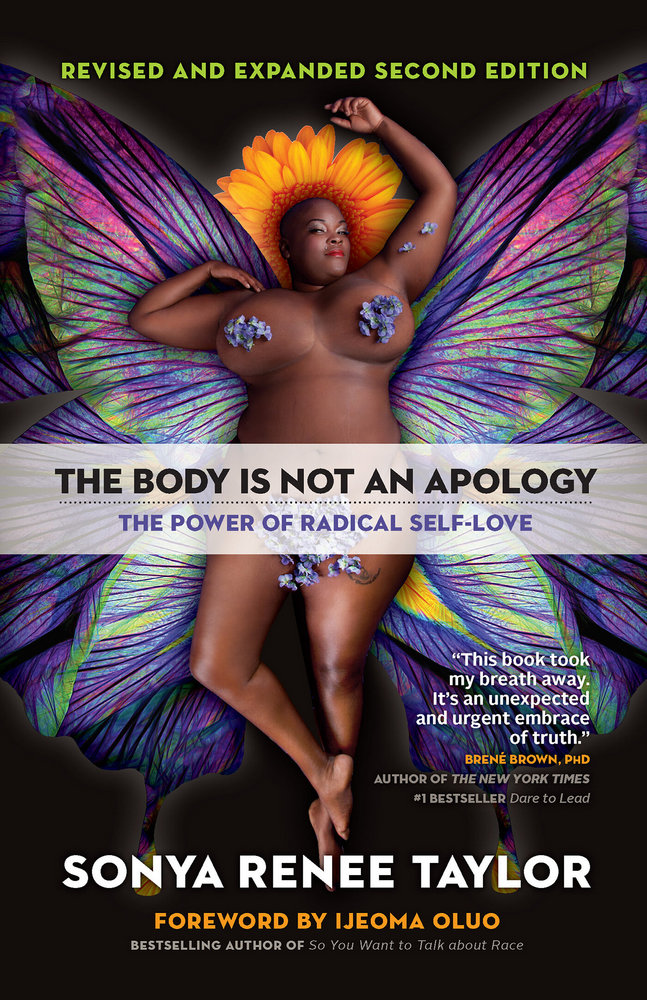Health at Every Size® (HAES) 101
People in all bodies can work towards health — without trying to lose weight.
This post may contain affiliate links, which allow us to earn commissions on products we recommend. All opinions are our own.
What is Health at Every Size?
Health at Every Size, or HAES, is a framework for health, wellness and medical care that considers all bodies to be worthy of dignified and respectful care as they exist right now.
The Association for Size Diversity and Health (ASDAH), which owns the trademark for the HAES name, defines it as:
“The Health At Every Size® (HAES®) approach is a continuously evolving alternative to the weight-centered approach to treating clients and patients of all sizes. It is also a movement working to promote size-acceptance, to end weight discrimination, and to lesson the cultural obsession with weight loss and thinness. The HAES approach promotes balanced eating, life-enhancing physical activity, and respect for the diversity of body shapes and sizes.”
Health at Every Size is a weight-neutral approach to health, which means that “A person’s health status, risk level, or quality of life cannot be assumed based solely on a number on a scale. Bodyweight is not as directly and linearly related to higher quality of life and reduced risk of disease as is commonly thought.”
This doesn’t mean that every person in every body is healthy at this specific moment, but it means that every person can work towards health and healthy behaviors — whatever that looks like for them. Health at Every Size takes into account differences in body size and shape, chronic illness and the social determinants of health.
The Foundations of HAES
Anti-racism is a vital component of Health at Every Size. Fearing the Black Body by Sabrina Strings explores the history of how racism and fatphobia are tightly linked.
The book Body Respect by Lindo Bacon and Lucy Aphramor is a foundational HAES read. It replaces the older version called Health at Every Size.
Intuitive Eating by Evelyn Tribole and Elyse Resch is a guide to food and nutrition that dovetails with HAES principles.
The Body Is Not an Apology offers radical self-love as the balm to heal the wounds inflicted by violent systems of oppression.
What does Health at Every Size mean?
There are four principles underlying Health at Every Size:
Healthcare is a human right for people of all sizes, including those at the highest end of the size spectrum.
People of all sizes, including those at the largest end of the size spectrum, have the right to healthcare without exception. Fat people’s access to compassionate & comprehensive healthcare should not depend on obtaining a certain BMI, pursuing weight loss, and/or holding health as a value or pursuit.
Wellbeing, care, and healing are resources that are both collective and deeply personal.
Because health exists on a continuum that varies with time and circumstance for each individual, Health at Every Size® aims to focus on wellbeing, care, and healing. These are resources from which we can all pull to meet our needs. And we get to have others pour those resources into us and vice versa. Community care and mutual aid is key. Health at Every Size® providers and advocates must work to promote and create the conditions that support wellbeing i.e. environmental care, clear air & water, equitable access to food, and more. Each person is the expert of their own body and should have the right to make autonomous decisions about their health and wellbeing, including how they value or prioritize health among all the other important aspects that make up a life.
Care is fully provided only when free from anti-fat bias and offered with people of all sizes in mind.
Anti-fat bias, and fatphobia are detrimental to the health and wellbeing of all people, especially fat people. When health research, health policy, health education, and the provision of care does not include the full human size spectrum, it harms people of all sizes and is the antithesis to Health at Every Size®. Those who provide Health at Every Size®-aligned care must strive to dismantle anti-fat bias personally and systemically in order to provide care for all bodies.
Health is a sociopolitical construct that reflects the values of society.
How our society currently defines health is rooted in white supremacy, anti-Black racism, ableism, and healthism. As the values of our society become more rooted in collective liberation, we have the opportunity to critically examine and redefine health, disease, and illness. Regardless of the definition of health, however, access to care must never depend on an individual’s or community’s health status, pursuit of health, or compliance with health recommendations.
Find more information on each principle on the ASDAH website.
Intersectionality Simplified: What Every HAES® Advocate and Practitioner Needs to Know
Where did HAES come from?
Health at Every Size was developed over decades of work and research by people of all sizes, including both healthcare providers and fat acceptance activists. Though HAES would also be considered body positive, its roots lie in radical fat activism. As a framework, it was designed to center the most marginalized people (e.g., fat and very fat folks, Black and other People of Color, and other oppressed groups), so practitioners should be prepared to incorporate intersectional social justice into their work.
Is Health at Every Size anti-diet? Isn’t losing weight healthy?
Health at Every Size is an evidence-based framework. That means that rather than going with what “everybody knows” about body size and health (which perpetuates racism and weight stigma that prevent people in larger bodies from getting respectful and effective healthcare), HAES is based on actual science.
Studies show that 95-98% of people will gain back all the weight they lose from diets and “lifestyle changes” within five years — and two-thirds of them will gain back even more than they lost. We don’t have a single study (even from diet companies!) that shows it’s possible to lose more than a few pounds and keep it off in the long term.
What we do have is new science that shows that weight cycling — gaining and losing weight repeatedly — is much worse than just living in a fat body. We know that body size is largely determined by genetics and the social determinants of health, rather than willpower, individual choices or moral virtue.
Given these facts, it only makes sense to work with the bodies we have, and pursue healthy behaviors rather than intentional weight loss.
Terms to Know
- Body liberation: “The freedom from social and political systems of oppression that designate certain bodies as more worthy, healthy, and desirable than others” (read more).
- Body positive: The concept that all bodies have worth as they exist today (read more).
- Fat: As used here, a neutral descriptor of a large body. Though some people use this as an insult, I and many other fat people have reclaimed the term. (You are, of course, welcome to identify with the word or not; it’s up to you!)
- Fat acceptance: The concept that fat bodies are just as worthy as thin bodies and should be accepted as a natural part of human variation (read more).
- Fat positive: The concept that fat bodies are not just worthy, but have beauty and value of their own.
- Health at Every Size®: The concept that every body can work toward its own version of health at its current size (read more).
- Intuitive eating: Listening to your body and eating in accordance with it (read more).
- Overweight, obesity and obesity stigma: Outdated, offensive terms that medicalize and stigmatize a group of people with perfectly normal human bodies.
- Privilege: “A set of unearned benefits given to people who fit into a specific social group” (read more).
- Intersectionality: Overlapping and interdependent systems of discrimination or disadvantage.
- Marginalization: “Pushing a particular group or groups of people to the edge of society by not allowing them an active voice, identity, or place in it” (from http://counselingcenter.syr.edu/social-justice/impact-of-marginalization.html).
- Mindful eating: Eating with the intention of feeling better when you’re finished eating than you did when you started, and eating with the attention necessary for noticing and enjoying your food and its effects on your body (read more).
- Social determinants of health: “Conditions in the places where people live, learn, work, and play that affect a wide range of health and quality-of life-risks and outcomes” (read more).
- Weight stigma: “Weight stigma, also known as weight bias or weight-based discrimination, is discrimination or stereotyping based on a person’s weight. Weight stigma can increase body dissatisfaction, a leading risk factor in the development of eating disorders. The best-known environmental contributor to the development of eating disorders is the sociocultural idealization of thinness” (read more).
HAES Resources
Education
- 9 Foundational 101 Reads for Health at Every Size (HAES)
- An Evidence‐Based Rationale for Adopting Weight‐Inclusive Health Policy
- HAES books
- HAES Health Sheets
- Intuitive Eating books
- The Weight-Inclusive versus Weight-Normative Approach to Health: Evaluating the Evidence for Prioritizing Well-Being over Weight Loss
- Unpacking Weight Stigma I
- What are We Going to Do About the Weight?: Weight Stigma in Health Care
Resources
- Fat Friendly Health Professionals List
- Fat Liberation Syllabus for Revolutionary Leftists
- Fat-friendly waiting room furniture
- HAES-Aligned Resources for PCOS
- HAES Resources for Chronic Illness and Diabetes
- HAES stock photos
- Love What You Eat (no-diet-talk recipes)
- NOWEIGH!
- The Practical Kitchen (no-diet-talk recipes)
- Workweek Lunch (no-diet-talk recipes)




